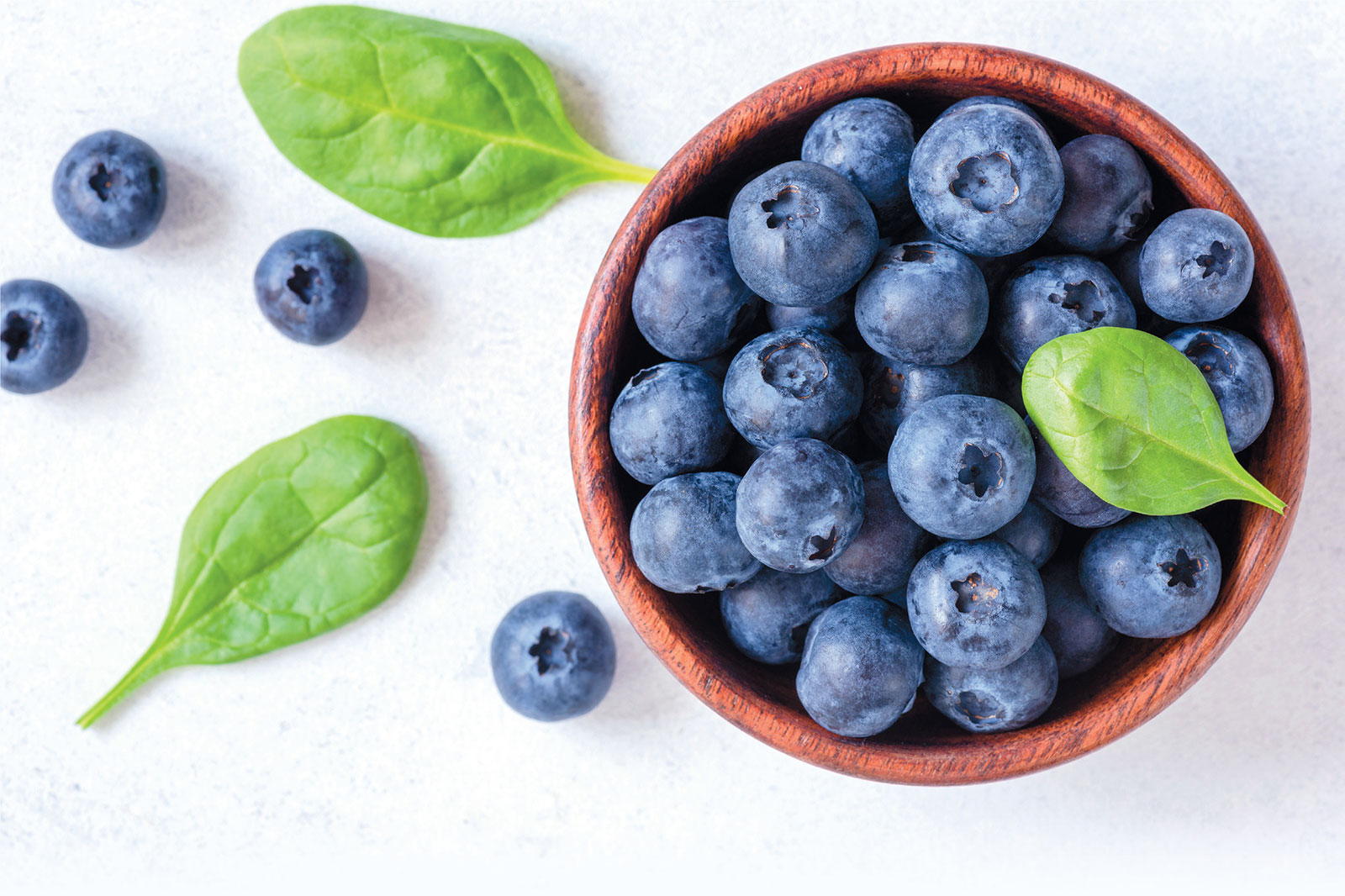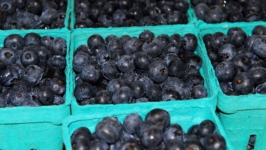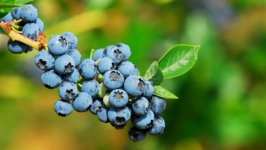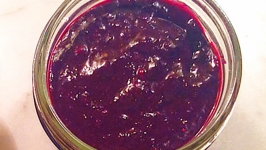Blueberries: So Good For You & Tasty, Too
BLUEBERRY HAVEN IS HEAVEN FOR BLUEBERRY LOVERS
If that big buttery muffin loaded with sugar is also a blueberry muffin, it has to be good for you, right?
OK, maybe there are healthier ways to eat them, but there’s no denying that blueberries are one of the best ways to take care of yourself while treating yourself.
These sweet little fruits are low in calories (fewer than 100 for a full cup) and packed full of antioxidants – the highest levels of antioxidants of all fruits and vegetables, in fact. One cup of those low-cal beauties delivers 14 percent of the recommended daily dose of fiber and nearly a quarter of the recommended daily intake of vitamin C.
According to WebMD.com and healthline.com studies have shown that consumption of blueberries can protect against DNA damage, protect LDL (”bad” cholesterol) from breaking down in your body, lower your blood pressure and even prevent heart attacks.
Several studies have shown that blueberries have anti-diabetic effects, helping to improve insulin sensitivity and lower blood sugar levels. Like cranberries, blueberries contain substances that can prevent certain bacteria from binding to the wall of the urinary bladder, and that may be useful in preventing urinary tract infections. Blueberries may help reduce muscle damage after strenuous exercise.
That’s why it feels like your whole body breaks into a smile when you put a handful of blueberries into your mouth. They’re not only delicious, they’re good for you.
Northeast Wisconsin is not the easiest place to grow blueberries.
“One of the most critical factors for successful blueberry production is providing an ideal soil pH in the range of 4.5 to 5.0,” writes Vijai Pandian, horticulturist with the University of Wisconsin-Extension office serving Brown County. “This is a challenge in many parts of Wisconsin where soils are typically too alkaline (i.e., the soil pH is too high – above 7.0) for blueberries.”
As a result not many farmers in the area grow blueberries. Many pick-your-own-berries businesses that draw huge crowds to harvest strawberries and raspberries in the summer will offer Michigan blueberries at their stands or farmers market booths.
For home gardeners, Pandian recommends growing blueberries in containers and even takes it one step further: Instead of regular garden soil, prepare an acidic mix, such as one part sphagnum peat moss and one part shredded pine bark.
But if you’re just looking for a blueberry fix fresh off the bush, there is an alternative about an hour west of Green Bay; Blueberry Haven just north of Black Creek, where Duane and Moni Jarvais opened their 14-acre Blueberry Haven farm to blueberry pickers every summer for more than a decade now.
Moni said she had researched blueberries while looking for a niche to call their own and they decided to give it a shot. In 2002 they planted more than 16,000 high-bush (up to 5 feet tall) blueberry plants.
“We spent 2002 prepping the soil, building the mounds, planting the plants and irrigating,” she said. “We have sandy spots and areas with heavier soil, so we chose different plants for different parts of the acreage.”
It takes the young plants five years to mature to the point where they will bear fruit, and so Blueberry Haven did not open to the public until 2007.
They follow an all-natural fertilization program using fungicides and herbicides only when needed and only before the fruit begins to grow.
The biggest challenge wasn’t alkaline soil – it was simply that this is Wisconsin.
“Our first concern was our Wisconsin climate,” Moni said. “Every year is different. It’s farming, and Mother Nature rules.” That means if Mother Nature decides to drop close to 30 inches of snow in April – as she did this past April 13-15 – maybe the goal of fertilizing by the first of May will be set back a bit.
The upside of the record snowfall is that it melted the Jarvaises didn’t have to irrigate the fields until drier weather came by in May and June.
They chose five hardy varieties that ensure a season of up to eight weeks – Duke, Patriot, Blue Crop, Blue Ray and Nelson – and they ripen in that order.
Each plant is good for a couple of pickings each summer. Typically the blueberries are ready for the rush of pickers by mid-July and the season lasts well into August.
What is the secret to know when to pick?
“When a blueberry is ripe, it’ll come right off with a roll of your thumb,” Moni said. “If you need to give it a little tug, it’s ripe but it won’t be quite as sweet.”
In season, Blueberry Haven is open 7 a.m.-1 p.m. Tuesday through Saturday for U-pick and pre-picked berries; they will also take orders. The farm also carries some yummy and unique blueberry products in their sales center, along with cookbooks filled with great ideas to use your freshly picked berries.
Blueberry Haven is located south of Clintonville and north of Black Creek at W9967 County Road XX. The best way to know when they’re going to be open is to visit Facebook.com/BlueberryHaven or www.blueberryhaven.net.
To learn more about growing blueberries in containers, go to https://hort.uwex.edu/articles/growing-blueberries-containers/










